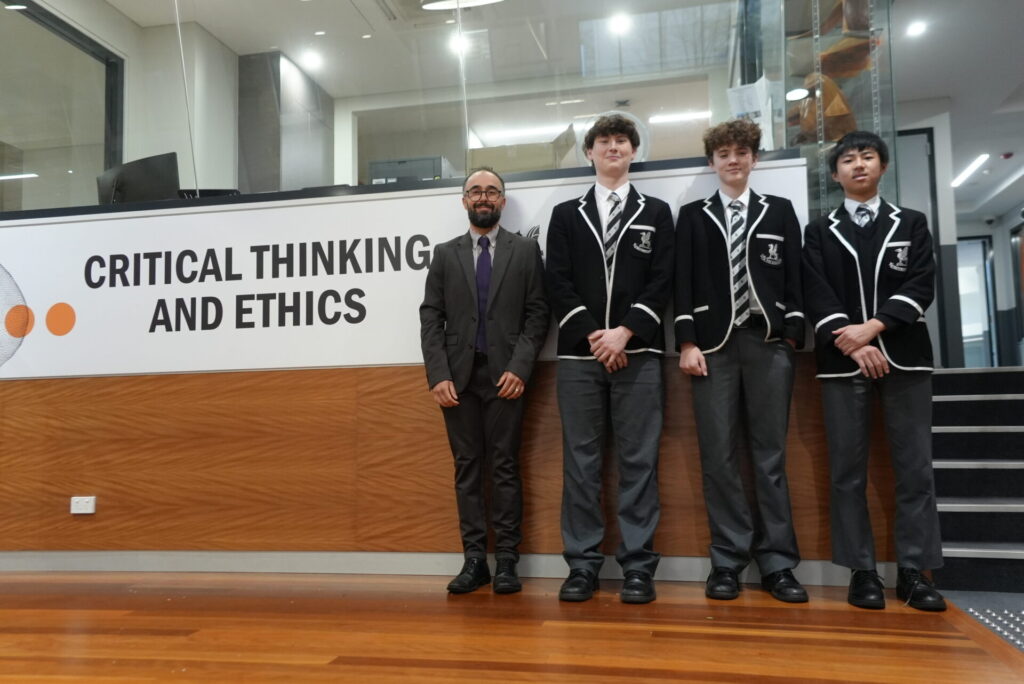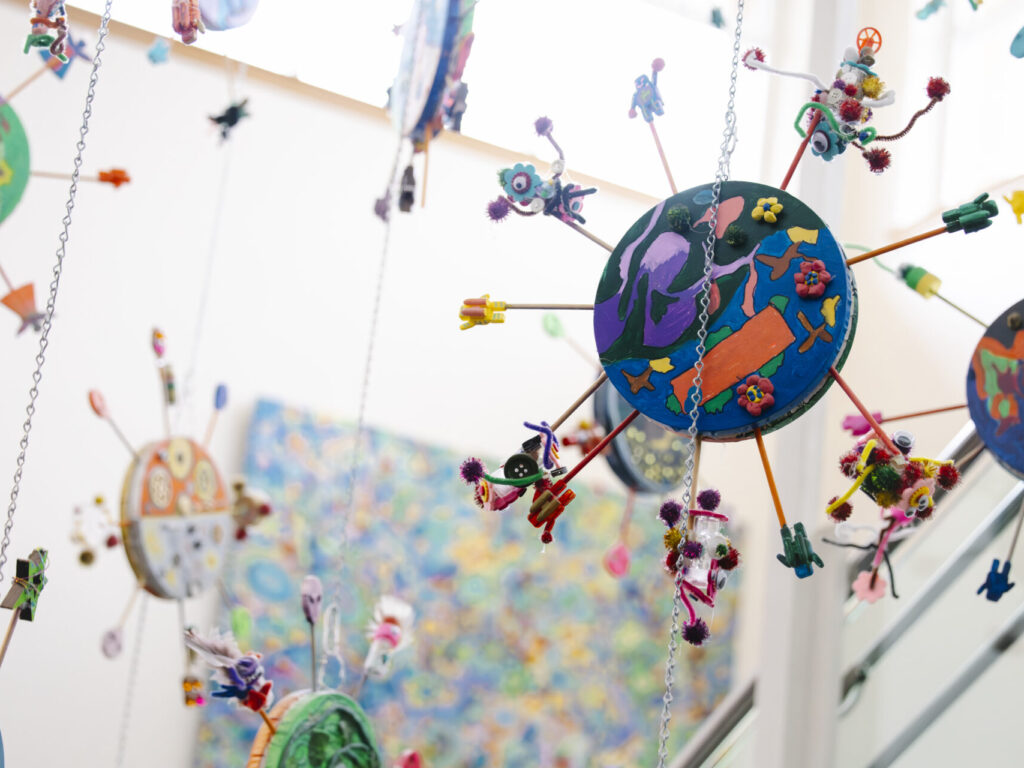Ethics Olympiad finalists weigh in on the big issues
Is a romantic relationship with a chatbot the answer to the loneliness epidemic? Do prospective parents have a moral duty to undertake prenatal screening for chromosomal or genetic conditions prior to the birth of their child? And are governments justified in implementing a blanket ban on tobacco and cigarette use for those not yet old enough to smoke?
These are just some of the moral and ethical dilemmas that participants in the annual Ethics Olympiad recently had to wrap their heads around.
Now in its seventh year, Newington College entered two senior teams of five into the 2025 Ethics Olympiad – a competitive but collaborative event in which teams from 400 schools across the world analyse and discuss real-life, current, ethical issues facing society.
The gold medal standard of a student’s ability to think creatively and critically, the Ethics Olympiad differs from debating in that teams are not assigned opposing viewpoints to argue. Rather, to win, each team must discuss various responses to ethical problems by applying ethical theory and demonstrating they have thought more critically and perceptively about the issue than their interlocutors. The Olympiad is also judged on the quality of the dialogue and respectful engagement.
Teams compete against other schools in their own regional or state heats, and then the top two competitors from each of these heats qualify for the final round – the International Ethics Olympiad – which will be held this Thursday over Zoom.

This year, the Newington senior team, consisting of Lucas B, James H, Justin Z, James G and George W, took out first place in their heat and will compete as finalists against schools from around the world including New Zealand, India, Singapore, Canada, the UK and USA.
According to Mr Andrew Costantino, Head of Philosophy and Religious Studies and organiser of Newington’s Olympiad teams, making the final is a significant achievement.
‘It’s a very challenging competition, and our students have performed exceptionally well. We are very much looking forward to seeing them in action in the final,’ he says.
‘There will be three heats against a random selection of three schools. Each round is scored out of 60, and the highest cumulative score of those three 60-point rounds determines which team is the overall winner of the entire Olympiad.’
Newington’s senior team members are also eagerly anticipating the upcoming final round and are hopeful of a win – but win, lose or draw, Justin says simply being involved in the competition has been extremely beneficial.
‘Participating in the Ethics Olympiad has most definitely increased my capacity for critical thought,’ he says.
‘As we’ve moved through the competition and discussed all these ethical issues with other teams, we’ve been exposed to more diverse points.
‘Although in the Olympiad you don’t have to take an oppositional stance against the other teams, we do usually have some points of contention. So of course there are some ideas that we discuss repeatedly, and I think through that process we gain a much broader perspective.’
James H agrees, citing a particular case the team recently tackled, questioning whether couples should undertake prenatal screening to determine the genetic condition of their unborn child.
‘Often we take a fairly neutral stance in our cases, but for this one we went quite hard in saying that expectant parents should always inform themselves,’ he explains.
‘I found it interesting because it wasn’t a pro-life or pro-choice debate but rather it was about the duty they have to their child.’
Mr Costantino says the Ethics Olympiad is a fantastic opportunity for students to build on their philosophical studies and extend their capacity for critical thinking and reasoning.
‘I really like the competition for the opportunity it provides to open students up to these kinds of big questions. It strengthens the subject, strengthens the quality of the dialogue and enables an extension on what the students are already doing in their classes.’
The junior Ethics Olympiad competition will take place in Term 4, with the final held in Term 1, 2026.
For more information about the Critical Thinking and Ethics program at Newington College, visit https://www.newington.nsw.edu.au/whats-happening/critical-thinking-ethics-and-ethics/.



